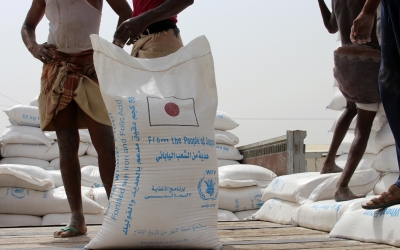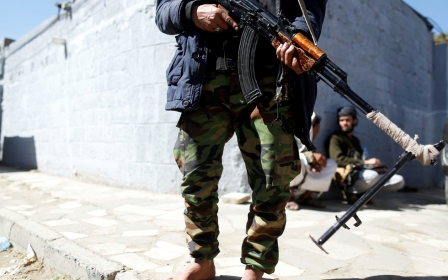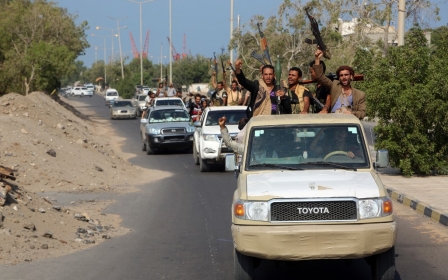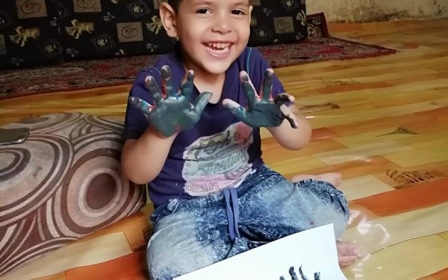World Food Programme says it has gained access to Hodeidah food aid in Yemen
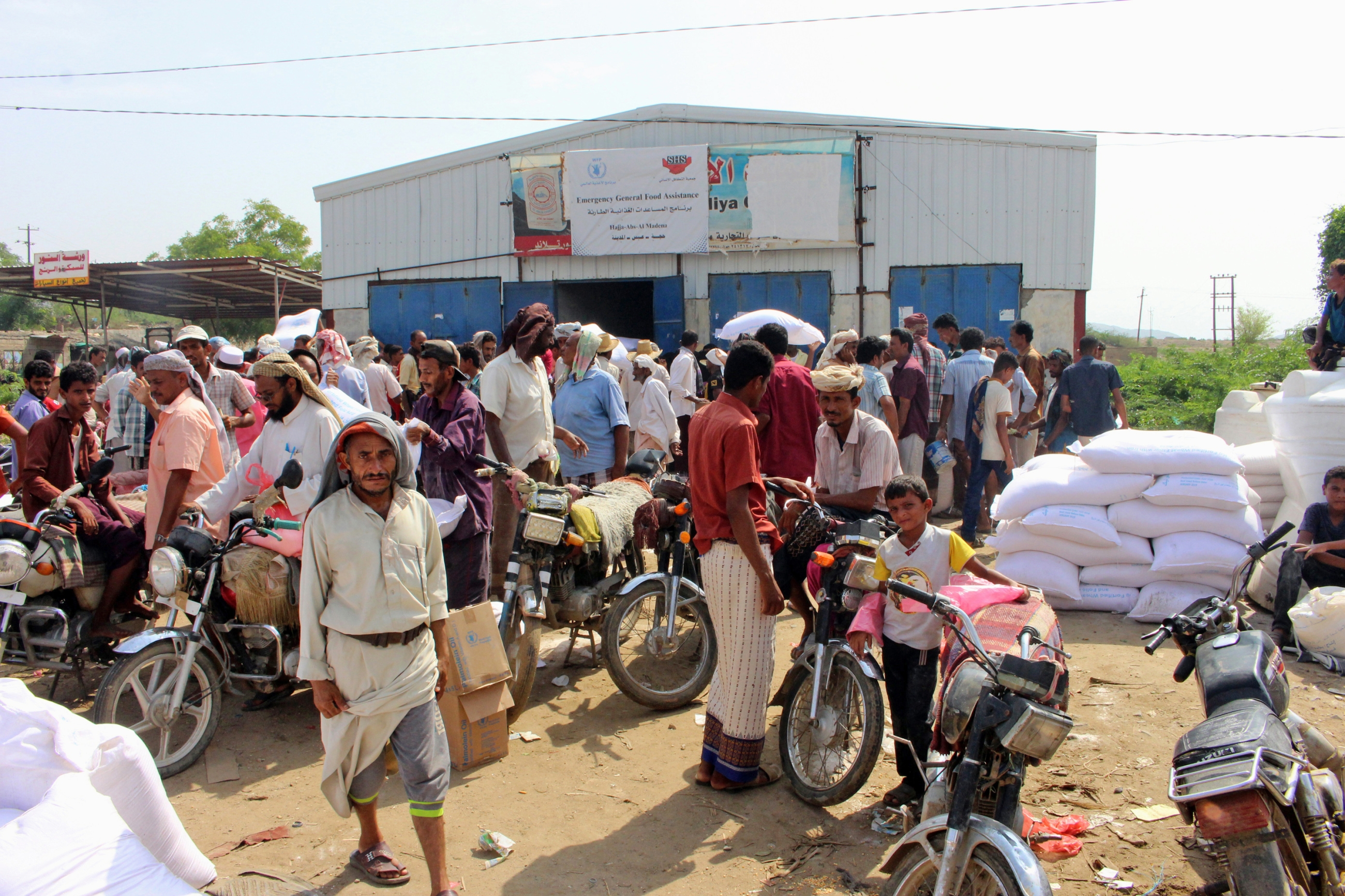
The United Nations' World Food Programme (WFP) has gained access to vital food aid on the outskirts of the flashpoint city of Hodeidah, after previously delaying a mission to retreive it for "security reasons".
The organisation announced on Saturday that a WFP-led mission and a technical team of the Red Sea mills company had gained access to the food aid.
"The technical team will remain at the site to clean and service the milling equipment in preparation for the milling and eventual distribution of the wheat," WFP spokesman Herve Verhoosel told the AFP news agency in an emailed statement.
Prior to the UN losing access in September, the Red Sea Mills held 51,000 tonnes of grain - enough to food for more than 3.7 million people in a month.
Once the agency regained access in February, however, hopes were raised that the wheat could be released for consumption by Hodeidah's starving population.
Yet soon after, reports emerged that the wheat, which constitutes one-quarter of WFP’s in-country stock, was infected by weevils and rotten.
Following testing, those reports appeared correct - although a WFP spokesperson told Middle East Eye that much of the wheat was still salvageable.
"WFP carried out a full assessment of the condition of the wheat and laboratory tests confirmed it was infested with insects, which has resulted in some hollow grains," one of the agency's spokespeople, who preferred not to be named, told MEE.
"The wheat needs to be fumigated before it can be milled into flour. We anticipate the flour yield will be slightly lower than normal due to the hollow grains that will be sifted out during the milling process."
Aid crisis
The announcement comes after an agreement was struck in Sweden in December, in which Yemeni rivals agreed to redeploy their fighters outside the ports and away from areas that are key to the humanitarian relief effort.
Fighting in Hodeidah, whose port serves as the country's lifeline, has largely stopped since the ceasefire went into effect on 18 December, but there have been intermittent clashes.
Both the government and the Houthi rebels who hold Hodeidah have been accused of violating the truce deal, while an agreed redeployment of forces has not yet been implemented.
The more than four-year conflict in Yemen has killed tens of thousands people, many of them civilians, relief agencies say.
The fighting has triggered what the United Nations describes as the world's worst humanitarian crisis, with 3.3 million people still displaced and 24.1 million - more than two-thirds of the population - in need of aid.
Residents of Hodeidah told MEE in March that the food aid was vital to prevent starvation in the city.
"I call on organisations to double their work to target all the needy people in Hodeidah," said Khalid Hasan, a father of five who lives in a small hut on the outskirts of the city.
"The war deprived us from everything beautiful and we hope it will not deprive us from aid food. If not for the aid we would have starved to death."
Tallal al-Raimi, a resident of Hodeidah in his 40s, fled with his family from the city's al-Hawk district during fighting last June and settled in the city centre.
"Since I have arrived, I received just one food basket in August and then, I did not receive any aid at all," Raimi told MEE at the time.
He said he had once worked as a fisherman but could no longer squeeze a living at sea with the war and now depends on neighbours to feed them.
"I hope that organisations provides me with enough food so we could overcome the current suffering," Raimi added.
Middle East Eye propose une couverture et une analyse indépendantes et incomparables du Moyen-Orient, de l’Afrique du Nord et d’autres régions du monde. Pour en savoir plus sur la reprise de ce contenu et les frais qui s’appliquent, veuillez remplir ce formulaire [en anglais]. Pour en savoir plus sur MEE, cliquez ici [en anglais].


